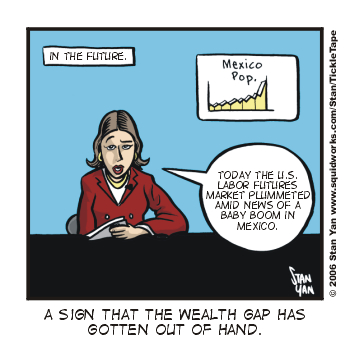 |
The movie, "Apollo 13," offers insightful lessons about trading, especially for a movie that isn't about trading. Apollo 13 was the doomed mission to the moon that was literally stuck in space. Without a cool, calm, methodical style of problem solving, the astronauts would have never made it home. One scene is particularly apt. While following standard operating procedures, command module pilot Jack Swigert stirred the oxygen tanks. Unexpectedly, one of them exploded. What did he do wrong? He just hit a button like he was supposed to. Yet the tank exploded. The rest of the mission was tense. How would they get back home? In a later stressful moment, fellow astronaut Fred Haise accused Jack of doing something wrong and getting them all stuck in space. We know now that Jack had done nothing wrong but was merely following procedures. The oxygen tank was a defect, an error made by someone else months before they had even left the ground. But Fred's reaction was understandable. There is a very human, natural knee-jerk reaction to falsely believe that every action we take has a direct effect on what happens next. Sometimes what we do does make a difference, but at other times, our fate is sealed. And we can do nothing about it.
When trading the markets, it's natural to want to make every trade a winner. You can get overly compulsive about trying to anticipate everything that might go wrong, however. You may fruitlessly try to develop an action plan for every scenario. There's nothing wrong with over planning, but there comes a point where you have to accept that there is only so much that you can do. You can't control everything. It's just like the Apollo 13 mission. As much as the crew wanted to land on the moon, they could not. A series of events worked against them. If only the defect could have been identified sooner, they would have been safe. Such counterfactual thinking rarely gets us anywhere, though. During the mission, Jack Swigert probably wondered at times if he could have done something different. The truth is, unfortunately, he could have done nothing to prevent the malady. It's the same with trading. You may think you have accounted for all possible events that could go against your trade, but you cannot. Six months ago, for example, there may have been an accounting mishap that will be caught the day of your trade and reported by the media. There's nothing you could have done to know that an event from months ago would disrupt your plans. Similarly, you may have done all your homework on a company, and put on a trade, but little did you know, it was decided last week that the company was going to announce a merger with its rival. You may have scoured all the company reports, and talked to your "contacts" for hours, but the information you have as a trader is not perfect. And there are times when we are not able to anticipate every possible event. What happens will happen no matter what we do. It can be hard to accept that we are that helpless at times, but unfortunately we are.
You may ask, if my fate is sealed, then why bother trading? Just because your fate is sealed at times is no reason to become upset. In some ways, it can be a relief. If there are times when our fate is sealed, then we don't have to berate ourselves for the market going against us. We are mere humans trying to trade markets that are influenced by a host of factors, factors that no human can fathom. So when you are beating yourself up for failing to anticipate where the markets will go next, relax. Just do your best, and enjoy yourself. If you accept whatever happens, you'll trade more freely, creatively, and profitably.
The content of this site is copyright 2016 Financial Spread Betting Ltd. Please contact us if you wish to reproduce any of it.